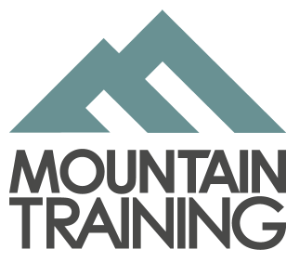"To inspire, enthuse, educate and engage." This sums up the duty that all good Mountain Leaders have to their clients and groups in providing a rich and fulfilling experience. Time spent with a Mountain Leader should benefit from a knowledgeable interpretation of the landscape, whether these are the genteel landscapes of the leafy lowlands or the rugged, wild landscapes of hill and mountain. Whether our clients and groups are engaged in a guided walk or a course of technical instruction, a good Mountain Leader will always have opportunities to draw upon the beauty, interest and fragility of the landscape to bring interest and colour to our time outdoors.
Mountain Leaders benefit from handbooks and cpd activities to help us maintain a good knowledge of landscape interest features. However, the character and quality of our upland and lowland landscapes are not static. They are influenced by changing attitudes towards conservation, political aspirations and by the impact of major development projects. Our challenge is to remain up to date in our knowledge and understanding of these influences.
In this article we describe a number of environmental organisations that can help a good Mountain Leader to meet this challenge to remain well-informed on environmental conservation issues of importance to our work. These organisations undertake environmental education initiatives that help to identify and articulate landscape conservation topics of great relevance to Mountain Leaders interests. They also undertake valuable conservation management projects within areas of iconic upland and lowland landscape, ranging from footpath erosion control to complex ecological restoration programmes. Some of these organisations are involved in lobbying and campaigning to promote important aspects of wise and sensitive landscape conservation.
John Muir Trust
If you had to create an environmental organisation that could best support the access and environment work of MTA members it would look a lot like the John Muir Trust (JMT). Formed in 1983, the JMT is a UK charity dedicated to the protection and enhancement of wild places. This is achieved through ownership and management of iconic upland landscapes, including land on and around Ben Nevis, on the Isle of Skye, within Knoydart, across Scheihallion, at Glenlude in the Borders, on Quinaig in Assynt and at Sandwood in Sutherland. More recently, the JMT has taken on responsibility for the management of Glenridding Common in the Lake District which includes Helvellyn. The JMT administers the John Muir Award, helping schools, outdoor centres, youth groups, adults and families connect with, enjoy and care for wild places. The tireless lobbying work undertaken by JMT policy staff helps to keep wild land conservation issues high on the political agenda.
The JMT’s work on habitat management within their properties, on environmental education programmes to support the John Muir Award and campaigning activities are of direct relevance to Mountain Leaders’ access and environment interests. The JMT produces fantastic publications, informed by experts and containing just the right amount of information on key wild land conservation topics of interest to MTA members.
Moors For the Future
Moors For the Future (MFF) is a project based in the Peak District National Park that is an example of an environmental interest group that is focused on a specific area of upland conservation of great importance to Mountain Leaders’ work: the rehabilitation and conservation of Britain’s peatlands. MFF is not a membership organisation but creates many opportunities for volunteer involvement in its peatland rehabilitation and conservation projects. These are well-run, and typically lead by knowledgeable and enthusiastic MFF staff. MFF work is gaining an international reputation for the development of ecological rehabilitation methods that are having a significant impact on reversing centuries of peatland degradation in the Peak District and South Pennines.
Involvement with MFF projects provides a thorough understanding of the global importance of Britain’s peatlands, their fascinating ecology, the causes of their degradation and the rehabilitation methods that are being used within MFF project areas. I have enjoyed volunteering on MFF projects, and they have always enriched my understanding and enjoyment of our important peatland landscapes.
Trees for Life, Reforesting Scotland, Carrifran Wildwood Project and Wild Ennerdale
Trees for Life, Reforesting Scotland, the Carrifran Wildwood Project and Wild Ennerdale are four more interest groups and initiatives that are focused on specific aspects of upland conservation: rewildling and native woodland regeneration within the uplands. These organisations achieve their objectives through award-winning ecological restoration and rewilding projects that have a powerful commitment to environmental education. As with the other organisations included in this review, they provide opportunities for membership, use of their literature and volunteering on their projects. These activities will provide Mountain Leaders with fantastic opportunities to keep up to date with developments in upland ecological restoration and rewilding from a group of organisations and projects that are at the forefront of this important aspect of upland conservation.
It is important to remember that assessment candidates can be deferred if they fail to demonstrate adequate knowledge and understanding of these important topics. Mountain Sense Mountain Leader training courses provide sound instruction on the interpretation of wildlife, habitats, geography and landscape conservation to help with assessment candidates’ success. Membership and involvement with organisations such as those included in this review will help Mountain Leader trainees to keeping their knowledge current as part of their assessment preparations. They will also have the satisfaction of helping organisations that support our access and conservation priorities through their land management, lobbying and environmental education work.
This article by David Broom is based on a contribution made by Mountain Sense to Professional Mountaineer, the Mountain Training Association members’ periodical.


